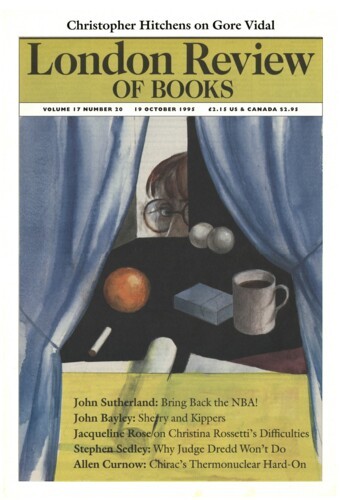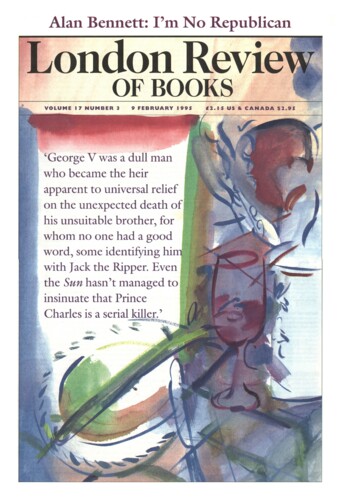What did it matter who I was?
Gaby Wood, 19 October 1995
Richard Rayner’s The Blue Suit is a memoir, a work of non-fiction. In it his father dies several times: of cancer, in a car crash, missing presumed drowned and, finally, of a heart attack. He makes guest appearances in between, as a sick man in Scotland, as a diplomat in Australia, as a stepfather. These events all form part of a story, a sort of Arabian Nights of the confessional, in which Rayner admits his real life to his girlfriend (‘one confession veiling the next’), and the whole truth turns out to be a narration of the lies he has told.



